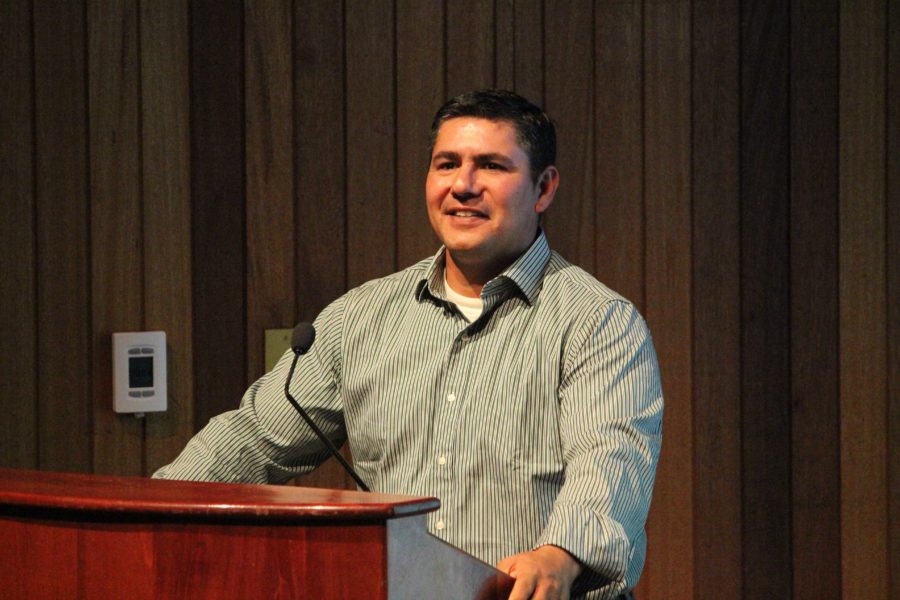Chairman Scott Gabaldon of the Mishewal Wappo tribe of Alexander Valley visited Santa Rosa Junior College to help raise awareness of his upcoming court appearances to restore Native American status to his tribe as the Mishewal Wappo tribe lost its federal recognition in 1959 as part of the California Rancheria Act.
Gabaldon came to Newman Auditorium April 5 to educate SRJC students about the legal battle between the Mishewal Wappo and the State of California. Originally the Mishewal Wappo petitioned the federal government to return to them the 53 acres of land in Alexander Valley in addition to recognizing their Native American status. After continuous disputes with the counties regarding ownership of the land, the Mishewal Wappo dropped the land claim, only petitioning to restore the tribe’s status. “There is a fear that if the state returns the land to us, we’ll build a casino on top of it,” said Brenda Flyswithhawks, psychology professor at SRJC. “It’s a bad stereotype.”
The Mishewal Wappo tried every method of legislation to protect their cultural identity. Gabaldon said the tribe went to Congress with multiple claims that the tribe was unlawfully removed from tribal recognition, but the claims were dropped on the grounds that the Mishewal Wappo had no land claims. “Congress commissioned a historian to research our claim and instead he completely wrote us out of history,” Gabaldon said.
Gabaldon and the rest of the tribe plan to appear in court June 25 in San Jose to prove their existence both physically and legally. “The federal government says we don’t exist. But if a judge sees 300 people in the courtroom defending themselves, there’s no denying that we do exist,” he said. Members of the Mishewal Wappo urged the audience to accompany them to San Jose to show their support. Anyone with experience driving large passenger vehicles is encouraged to help organize mass transportation.
The Mishewal Wappo wants to help educate California’s youth about the existence of all Native American tribes, both federally recognized and unrecognized. The tribe works with the St. Helena and Napa Cultural Heritage Centers to construct educational packets which are distributed in elementary schools. “We need to stop perpetuating the lie that these tribes aren’t here,” said tribe member at large Vincent Salsito.
After Gabaldon’s presentation, audience members were welcome to approach the microphone and ask questions or give comment. Many members belonged to the Mishewal Wappo and said that supporters can join the tribe’s Facebook page to help organize events and donate to the tribe.
The counties near Alexander Valley still oppose any attempt to restore tribal status to the Mishewal Wappo. Gabaldon says every tribe in the local area including Dry Creek and Graton Rancheria support Gabaldon and his tribe.
Gabaldon doesn’t care about the land anymore. Various vineyards and private holders currently own the 52 acres. Instead, Gabaldon wants to see his tribe’s name restored for good.
“I don’t need a piece of paper to tell me I’m a Native American,” he said. “It’s really just to make people see that we are here, to know that we are a tribe.”



NQuast • Apr 15, 2013 at 3:52 pm
[The Oak Leaf originally ran this article incorrectly citing the tribe as the Mishal-Wappo. We apologize for the mistake and have corrected it in the online version. – Ed.]